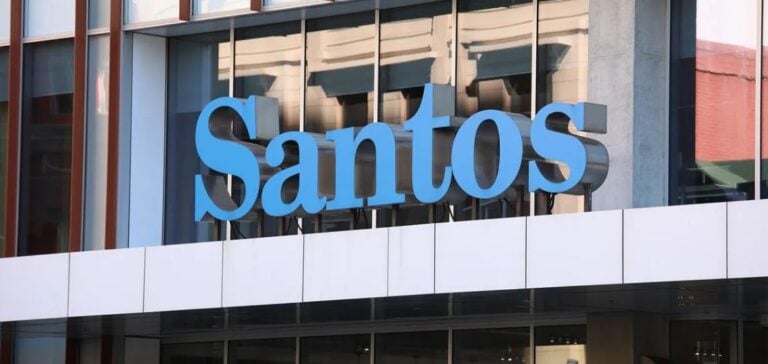Australian company Santos plans to increase its oil and natural gas production by more than 30% by 2027 compared to levels expected in 2024. This growth is based on the launch of its strategic Barossa and Pikka projects, according to a statement released on November 19.
Strategic projects: Barossa and Pikka
The Barossa gas project is currently 84% complete, with production scheduled to start in the third quarter of 2025. Meanwhile, the Pikka oil project is 70% complete, with initial production expected by the first half of 2026. These two projects are key components of Santos’ growth strategy.
In Papua New Guinea, the Angore wells are now operational. Two wells have been successfully connected, supplying up to 350 million standard cubic feet of gas per day to support PNG LNG production. Additionally, the company has started drilling in the highly promising Hides Footwall structure.
LNG portfolio and strategic advantages
Santos relies on a strong LNG portfolio, backed by long-term contracts with top-tier buyers and flexible contract terms. These agreements offer profitability potential adjusted to market risks. The company also highlights the competitive advantages of its projects, particularly their proximity to Asian markets. This location reduces shipping costs and associated emissions compared to suppliers from the US East Coast and the Middle East.
Kevin Gallagher, Managing Director and CEO of Santos, emphasized the importance of this strategy. “Our gas resources and LNG facilities are ideally located near large-scale, low-cost carbon storage resources and existing infrastructure that can be repurposed for carbon capture and storage (CCS),” he said.
Carbon capture and storage (CCS)
Santos also positions itself as a leader in CCS. The company recently announced an ambitious goal to develop a commercial carbon storage activity capable of storing around 14 million tons of CO2 equivalent from third parties annually by 2040. This target represents about 50% of Santos’ Scope 3 emissions in 2023.
The Moomba CCS project, a key initiative, has already stored more than 150,000 tons of CO2. During its first phase, this project is expected to store up to 1.7 million tons of CO2 per year, depending on carbon dioxide availability. Santos claims this is equivalent to approximately 70% of Australia’s net annual emissions reduction in 2023.






















